Motorsport has long been a passion for some of the figures in motor retailing. John Cleland, the 1989 and 1995 British Touring Car Championship winner, runs a Volvo and Jaguar dealership in Galashiels, Scotland, and fellow BTCC and FIA GT racer Steve Soper took on a Lincoln BMW dealership as he retired from his race career.
Motorsport has long been a passion for some of the figures in motor retailing. John Cleland, the 1989 and 1995 British Touring Car Championship winner, runs a Volvo and Jaguar dealership in Galashiels, Scotland, and fellow BTCC and FIA GT racer Steve Soper took on a Lincoln BMW dealership as he retired from his race career.
Motorsport has long been a passion for some of the figures in motor retailing. John Cleland, the 1989 and 1995 British Touring Car Championship winner, runs a Volvo and Jaguar dealership in Galashiels, Scotland, and fellow BTCC and FIA GT racer Steve Soper took on a Lincoln BMW dealership as he retired from his race career.
Motorsport has long been a passion for some of the figures in motor retailing. John Cleland, the 1989 and 1995 British Touring Car Championship winner, runs a Volvo and Jaguar dealership in Galashiels, Scotland, and fellow BTCC and FIA GT racer Steve Soper took on a Lincoln BMW dealership as he retired from his race career.
JOHN BANKS GROUP |
|
|
Turnover £35.8m (2012) Profit £696,812 Franchises Honda (3), Suzuki (2), Honda motorcycles (1) New car and motorcycle sales 2,000 units Used vehicle sales 2,000 units |
|
The history of John Banks Group follows a similar pattern. John Banks was one of Britain’s leading motocross racers in the 1960s, winning the domestic championship four times and finishing second in the FIM 500cc Motocross World Championship in 1968 and 1969 with the BSA team. As the end of his racing career neared, in 1973 he opened an independent garage and forecourt in the quickly growing Suffolk town of Bury St Edmunds, and added a Honda motorcycle franchise a year later.
Five years on the business had outgrown its location so moved to a newly built showroom, from where John Banks Group retailed 1,000 motorcycles a year. Current managing director Mark Banks, John’s son and also a 125cc British Motocross champion, recalled how his father was close to Hirotoshi Honda, the head of tuning and race division Mugen and son of Honda founder Soichiro Honda, and Hirotoshi would often stay at their home when visiting.
“We had Honda cars in the showroom and slowly the business went from motorbikes to cars,” said Banks. In 1989, the company stopped selling road bikes but retained off-road bikes for a further three years before pulling out of motorcycle retailing completely.
“It was horrendous, we were busy fools. The market had just disappeared,” Banks said.
Yet John Banks Group reintroduced motorcycles at its Bury St Edmunds operation in 2011 and now sells scooters at the Honda car dealership in Cambridge, which it bought from Priory Motor Group in 2006. Why the change of heart?
Banks gives three separate reasons. The first is the growth in East Anglia’s population, including immigrant workers in the agricultural industry. At a time when many people are concerned by fuel costs and the proportion of two-car households has declined slightly, being able to sell a 150mpg Honda CBF125 motorcycle on a £99 deposit three-year hire purchase with free leathers and helmet helps him target commuters and people on low salaries.
The second is Cambridge’s heavy road congestion. But Banks said the assumption that a scooter business would be a gold mine hasn’t turned out to be quite accurate. A city centre so heavily geared up for cycling students has few parking spaces for mopeds.
“We sell a few but it isn’t anywhere near what you’d think it would be,” he said.
[page-break]The third is that the group ended a three-year relationship with Mitsubishi in 2009. It had added that franchise to its Bury Honda site in 2006, just months before Cambridge Honda came up for sale, and initially it worked. But the construction companies and farmers who had been good customers for the L200 pick-up stopped buying after the credit crunch of 2008 and Banks, used to the reliability of Honda and Suzuki models, wasn’t happy with Mitsubishi’s product quality or profitability.
“It’s very easy to run a motorcycle business if you’re good at selling cars. It’s about customer expectations – they’re lower with motorcycle customers. We treat them as the same customer, whether it’s a car, motorbike, or service or repair, and they’re not normally used to that.
“In this industry you’ve got to have good people, good systems and look after your customers. It’s as simple as that. Our core team has been stable although we move people between the branches sometimes, otherwise they get stagnant. We pay good money, and there are incentives set on the things they can change themselves.”
Today the two-wheelers account for about 300 units of John Banks Group’s 2,000 new vehicle sales annually. Honda cars are its largest source of business, at about 1,200 units from its Bury, Ipswich and Cambridge dealerships. Suzuki, which it has represented since 1997 with sites in Bury and Ipswich, accounts for 500 units. It also sells about one used car for every one new across the group.
“Why we put bikes in, when we restructured our business in 2009, and what we want in order to go forward with the business, is to bring in new customers. We’ve a live, cleansed database of about 11,500 customers and we need to build on that,” Banks said.
Those customers are a diverse bunch due to the territories the group operates in. Ipswich has an above average proportion of unemployed and low-paid workers in rented houses, while Cambridge has an above average level of highly skilled, highly paid workers with their own homes. Blanket marketing tactics don’t work across all three.
Nevertheless, thanks to its long relationship with Honda and an emphasis on satisfying customers, John Banks Group has a local market share of 12-13% compared with Honda’s national share of 2.6%. With motorcycles, it has a 24% share.
Both Honda and Suzuki have endured a few difficult years recently, with delayed new model introductions and the strength of the yen impacting on the franchises and market opportunities. Banks said he’s pleased that Suzuki is fighting back into the market now the yen has weakened.
[page-break]“The Suzuki brand and product range has stayed in its own market, with £5,995 and £8,995 cars, and now that the Korean brands want to be more like Honda and charge more, it has no competition.
“Obviously we’ve seen every single up and down with Honda over the years. We’ve been here when it did 107,000 units, but even now it’s much lower we haven’t really seen any difference in our own volume. We’re still selling a lot of cars. I hope we’ll sell even more from 2015. At the moment, we have only three Hondas selling in volume, and we’ve 18 months until Honda starts putting out a lot of new models.
“The Suzuki brand within our business doesn’t compete with Honda at all. Honda hasn’t any small cheap cars here and it won’t get any because of the cost to make them.”
Thanks to John Banks Group’s resilient performance – regularly top quartile for both Honda and Suzuki – it has good relationships with its national sales companies. Phil Crossman, Honda UK managing director, recently told AM the dealer is one of its star performers.
Banks sees it as a two-way relationship, with the NSC charged with doing the right marketing to bring customers to the dealer’s door, and the dealer tasked with looking after that customer well and selling profitably.
“It’s our business and we sell their products, and it’s our responsibility to make sure we can run our business and make a profit,” Banks said.
The figures indicate he takes this responsibility very seriously. In 2011, John Banks Group made a 1.8% return on sales, which rose to 2.1% in 2012 and will climb further, Smith insisted. A keen eye on costs is vital, he said. In fact, because the group didn’t need full-time accountancy staff, Smith moved the accounts team outside to form the One Stop Accountancy brand, an external company that serves other clients as well as John Banks.
What comes next? Banks said the company is at a point where it can consider its options, and an opportunity to expand again with Honda is on the horizon. In addition, the dealer group has full planning permission for a new showroom at its 1.8-acre Cheddars Lane site in Cambridge, which currently houses its standalone service centre.
Although the development has been shelved until the market has recovered, once it’s built the group may re-home its Honda showroom from the current Newmarket Road property and rent that site out. Banks said the rent would be more profitable than adding a small franchise.
[page-break]Adapting to technology
John Banks Group replaced its GDMS dealer management system with Pinewood’s Pinnacle during the restructuring. It was a crucial change, along with an expensive cleanse of its database, as it puts the business at the fingertips of the senior management team.
Finance director Andy Smith explained: “Mark can sit at his desk and see what every single person in the group is doing. That is the key. We soon wheedled out the weak links, in fact they put their hands up and went because their performance was there for everyone to see.” Even after a deal has been through the sales manager and booked onto the system, it requires authorisation by either Smith or Banks, so they can ensure the profits will stack up right.
“We used to spend hours going up and down the A14. Now it’s an easy phone call, just to ask what’s happening and to find out the issues,” Smith said.
It has also partnered with GForces for its digital channel. Its website offers live chat, online service booking, deposit payments and has YouTube-hosted videos of every used car under the John Banks TV banner. Banks said this will be an area for investment in the future.
“The next thing we’ll be looking at within dealer groups is a separate building with cameras and a turntable and a dedicated person for when our cars come in. We’re far better off investing in that than we are in taking on another salesman.
“This element of the business has got to be no different to the quality of your showroom. It’s a massive role because it’s a marketing tool within any business.”
Login to continue reading
Or register with AM-online to keep up to date with the latest UK automotive retail industry news and insight.




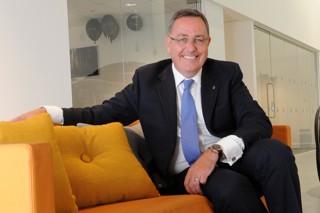
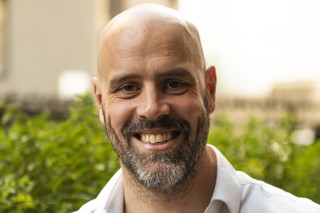
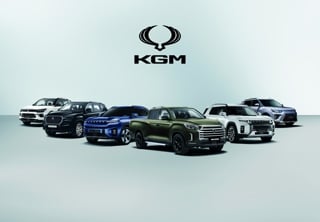
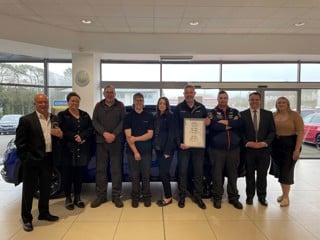
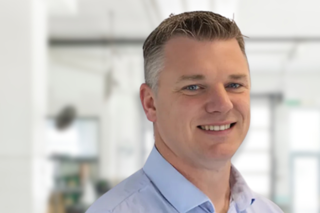












Greg Francis - 16/10/2013 20:49
So motorcyclists are happier with a lower level of service are they? How patronising! In 35 years of both cars and bikes, I can only think of one disappointing bike experience, while car experiences have often left an unpleasant taste...